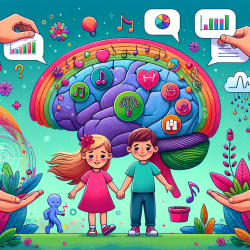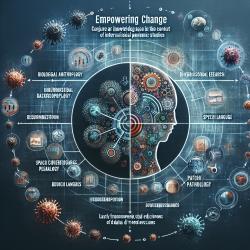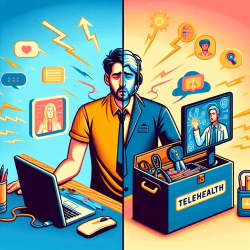As practitioners committed to improving the lives of children with severe neurological conditions, it's crucial to stay informed about emerging research. One such study that stands out is the recent article titled "Caregivers’ Perspectives on the Impact of Cannabidiol (CBD) Treatment for Dravet and Lennox-Gastaut Syndromes: A Multinational Qualitative Study." This groundbreaking research offers invaluable insights that can help us enhance our therapeutic approaches and outcomes for children.
The study explored the effects of highly purified cannabidiol (CBD) on children with Dravet syndrome and Lennox-Gastaut syndrome, focusing not just on seizure control but also on broader health-related quality of life aspects. Here are the key findings and how they can inform your practice:
Key Findings from the Study
- Seizure Reduction: Most caregivers reported a reduction in seizure frequency, severity, and duration. This allowed for better seizure management at home and fewer hospital visits.
- Cognitive Improvements: Caregivers observed enhanced attention span, awareness, and ability to learn new skills. These cognitive gains were noted even in children who did not experience significant seizure reduction.
- Communication Skills: Improved cognitive function led to better communication abilities. Children showed increased interest in social interactions and were able to engage in longer conversations.
- Behavioral Changes: While some children became calmer and more relaxed, a few experienced increased behavioral difficulties, highlighting the need for personalized treatment plans.
- Motor Function: Improvements in coordination, balance, and strength were reported, allowing children to participate more actively in daily activities.
- Emotional Well-being: Enhanced cognitive and motor functions positively impacted the emotional well-being of both children and their caregivers.
Implications for Practitioners
These findings underscore the multifaceted benefits of CBD treatment, extending beyond seizure control to improve overall quality of life. As practitioners, we can leverage this data to:
- Personalize Treatment Plans: Consider incorporating CBD as part of a comprehensive treatment strategy, tailored to each child's unique needs and responses.
- Monitor Beyond-Seizure Effects: Pay close attention to cognitive, behavioral, and emotional changes in children undergoing CBD treatment, adjusting therapeutic approaches as needed.
- Collaborate with Caregivers: Engage caregivers in ongoing dialogue to gather insights and feedback, ensuring a holistic approach to treatment.
- Advocate for Further Research: Encourage continued research to explore the long-term impacts of CBD and identify best practices for its use in pediatric neurology.
In conclusion, the study provides compelling evidence that CBD can significantly enhance the lives of children with Dravet and Lennox-Gastaut syndromes. By integrating these findings into our practice, we can offer more effective, data-driven care that addresses the broader needs of our young patients.
To read the original research paper, please follow this link: Caregivers’ Perspectives on the Impact of Cannabidiol (CBD) Treatment for Dravet and Lennox-Gastaut Syndromes: A Multinational Qualitative Study.










